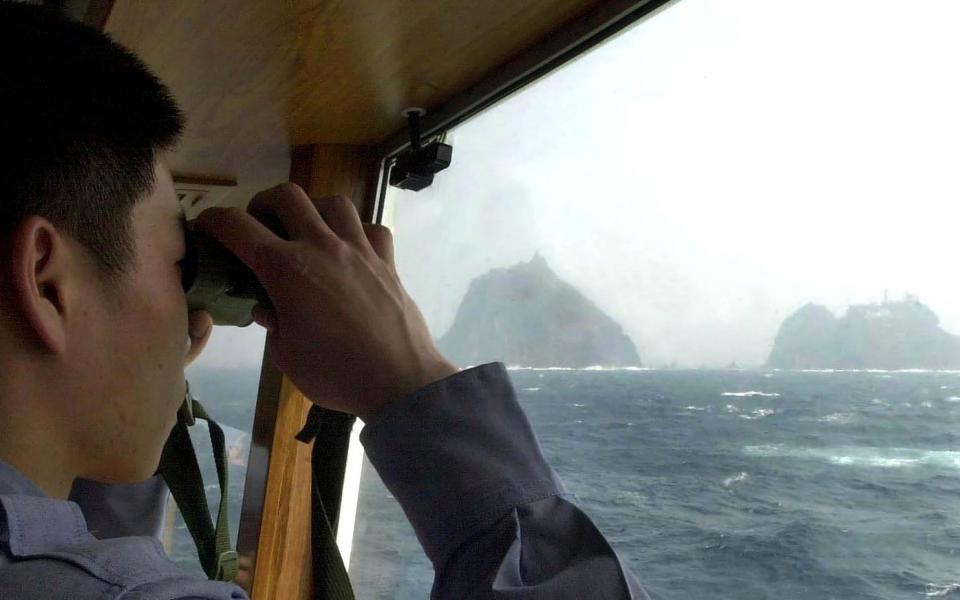South Korea fires warning shots at Russian military plane for violating airspace

South Korea has said its aircraft fired hundreds of warning shots at a Russian military plane for violating the country's airspace in a showdown that also involved Chinese and Japanese aircraft.
Moscow has denied that shots were fired or that its planes were in Seoul's airspace. This is the first time Russian military has been accused of encroaching upon Korea's skies, raising new tensions in an area better known for standoffs with North Korea and China.
The incident involving a flight group of Russian and Chinese planes took place over disputed islands in the Sea of Japan on Tuesday morning, shortly before Donald Trump's national security advisor John Bolton travelled to Seoul from Tokyo in an attempt to mend Korean-Japanese relations.
The South Korean defence ministry said a Russian A-50 control and observation plane, two Russian Tu-95 strategic bombers and two Chinese H-6 strategic bombers entered the Korean air defence identification zone, an area first established during the Korean War where it requires foreign aircraft to stick to a pre-submitted route.
The A-50 allegedly continued on to violate South Korean airspace over the Dokdo islands, also known as Takeshima or the Liancourt Rocks, which are controlled by Seoul but also claimed by Tokyo.
Intercepting F-15 and F-16 fighter jets fired 10 flares and 80 machine gun rounds, the defence ministry said. The Russian plane left the area but soon returned, whereupon the Korean jets fired 10 more flares and 280 machine gun rounds.

Seoul has lodged an objection with Russia and warned that it “will take even stronger action” if the situation is repeated.
Japan said it also scrambled fighter jets to intercept the Russian and Chinese planes. But it condemned the warning shots fired by South Korea as “totally unacceptable and extremely regrettable” in light of Japan's claim to the islands.
Moscow said two of its bombers had flown over “neutral waters,” as it doesn't recognise the Korean air defence identification zone, and accused Korean F-16s of cutting them off in “unprofessional manoeuvres” that threatened their safety.
It claimed that flares but no warning shots had been fired, suggesting that its pilots would have responded in kind if they had been.
Beijing, which has previously clashed with Seoul over its own air defence identification zone, said the Korean zone was not official airspace and all countries can enjoy freedom of movement there.
High-altitude sabre-rattling is not uncommon in the area. Japanese fighter jets reportedly intercepted Chinese and Russian aircraft 999 times between March 2018 and 2019.
But this marks the first major aerial conflict between Moscow and Seoul since a fighter jet mistakenly shot down a Korean Air Lines flight from New York to Seoul that passed through Soviet airspace in 1983.
Some analysts have speculated that Russia's aim on Tuesday was to take a poke at South Korea's alliance with the United States or gather information about its air defences.
The incident also highlighted growing economic and military cooperation between Moscow and Beijing. The two countries have held joint naval exercises in recent years, and a small contingent of Chinese forces participated in Russia's Vostok war games in 2018.
Russia recently delivered 24 Sukhoi Su-35 combat aircraft to China and has offered further such sales. It is also considering a military cooperation agreement with China.
